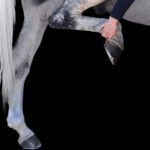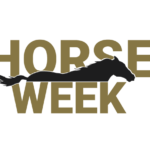Newsflash from the Brooke UK’s East Africa headquarters in Nairobi, dateline Dec. 12, 2014:
“In the past 24 hours, our Brooke colleagues in Kenya have been working tirelessly to rescue almost 40 donkeys used in a protest in downtown Nairobi. Two lorries loaded with about 20 donkeys each arrived in the city centre of Nairobi as part of a protest believed to have been against the government. They were each spray-painted with the Swahili word for ‘We’re fed up’: tumechoka. One lorry successfully offloaded the animals before driving away, while the other was intercepted by authorities.
“Brooke staff acted quickly to treat three of the injured donkeys. They are still on the ground safeguarding the welfare of the animals caught up in the protest and reported, ‘We sent a team to that part of the city in the morning and they have already taken 18 donkeys to the KSPCA (Kenyan Society for the Protection of Animals). Three of them were in bad shape and our vet is tending to them. The other team members have gone back to town where the rest of the donkeys are being held by the City Council to look into ways of getting them to KSPCA. We are coordinating with KSPCA on how to care for these donkeys in the next few days.’ “
Political incidents like this might be a bit unusual for the Brooke, an international charity dedicated to improving the lives of millions of the world’s working horses, donkeys and mules. But fortunately, members of its East Africa headquarters were well positioned to come to these animals’ aid.
Postwar Predicament
Just what is the Brooke? This charity’s story began 80 years ago, when British subject Dorothy Brooke sought to right a great wrong to some of the military’s most faithful servants in the wake of “the war to end all wars.”
 Dorothy Brooke
Dorothy BrookeRaised in Scotland, Wiltshire and Hampshire, “Dodo”‘ was a lifelong horse lover. In 1930, when her second husband, Major-General Geoffrey Francis Heremon Brooke, was appointed commander of the British Cavalry Brigade in Egypt, Brooke visited Cairo. There she was shocked to learn the fate of the thousands of cavalry, artillery and draught horses and mules who had served in the Egypt and Palestine campaigns during World War I. Sold after the Armistice into lives of hard labor as beasts of burden, these animals—many of whom had already carried or pulled unimaginable loads through injury, illness and short rations—now toiled for the poorest of families or in the stone mines. Brooke was haunted by these frail, emaciated creatures and resolved to help them.
Writing to an English newspaper, she raised awareness of the animals’ plight and appealed for donations to save them. The response was overwhelming, and by 1933, she was able to arrange the purchase of some 5,000 horses and mules. All were given badly needed rest and care, though tragically, for most of them, it was too little, too late. Many were in such poor condition that they had to be humanely destroyed. But with more animals requiring attention, Brooke founded the Old War Horse Memorial Hospital (now the Brooke Hospital for Animals), afree veterinary clinic for Cairo’s many working horses and donkeys, in 1934.
A Legacy of Advocacy
 His Royal Highness the Prince of Wales joins HRH the Duchess of Cornwall, who serves as president of the Brooke’s UK board.
His Royal Highness the Prince of Wales joins HRH the Duchess of Cornwall, who serves as president of the Brooke’s UK board.For the rest of her life, Brooke continued to advocate for education and practical aid in animal welfare, focusing on the world’s poorest countries. Her founding of the Cairo veterinary hospital paved the way for the establishment of the Brooke, now the world’s largest equine welfare organization which, last year alone, reached more than 1.4 million equine animals in Egypt, India, Pakistan, Afghanistan, Kenya, Ethiopia, Nepal, Senegal, Jordan, Nicaragua and Guatemala. Brooke’s grandchildren continue a tradition of service in this London-based organization, which boasts approximately 1,000 staff members worldwide and Her Royal Highness the Duchess of Cornwall as president of its UK board. And Brooke USA, which is based in Lexington, Kentucky, is a 501 (c) 3 sister organization created to support the overseas work of the Brooke.
In 2014, the Brooke celebrated the 80th anniversary of its founding with a reprint of Dorothy Brooke’s diaries, the release of two major reports examining the link between working equines and human livelihoods, and the publication of a Working Equid Veterinary Manual based on the Brooke’s many years of experience.
 One of the more desperate cases
One of the more desperate casesAccording to the Brooke’s sources, there are around 100 million horses, donkeys and mules laboring on roads, tracks, fields, farms and factories, supporting 600 million people. Nearly 80% of them suffer from malnutrition, exhaustion, disease and injury during the course of their working lives.
The Brooke tries to help wherever the need is greatest and the poverty most extreme by using local veterinary and animal health teams to provide treatment. In addition, Brooke employees and volunteers work within the communities to train the people who depend on these animals for their very survival to treat and care for them properly. Lastly, its members work to “influence people and institutions to recognize the role of working equine animals in poverty alleviation and encourage policy changes to improve their welfare.”
 A small boy with a donkey foal in Kenya
A small boy with a donkey foal in KenyaNor will the Brooke stop reaching out, as long as it has the means to do so. “This year will see the launch of a new strategy aimed at reaching even more animals and their owners in areas where no other help has previously been available to them,” says Brooke USA Fundraising Development Manager Cindy Rullman. The Brooke’s goal with its expanded service range is to improve the welfare of 2 million working horses, donkeys and mules every year, by 2016.
How You Can Help
Brooke USA is always keen to hear from existing and new supporters. There are lots of ways you can help, whether you’re an individual, business, a trust or a foundation.
From making a regular donation or talking to friends and colleagues about the work of the Brooke, to funding specific projects or displaying leaflets and posters in your local community—every little bit helps.
If you would like to find out more about how to become part of Brooke USA, please visit www.BrookeUSA.org or email info@thebrookeusa.org. Donations are tax-deductible to the extent allowed by law and can be made through the website or by check mailed to Brooke USA, 4089 Iron Works Pkwy, Lexington, KY 40511.
Brooke USA’s Board of Directors
Dr. David Jones, chairman of Brooke USA and director of the North Carolina Zoo
Sir David Madden, retired British diplomat and former ambassador to Greece
Dr. Jim Hamilton, equine sports veterinarian based in Southern Pines, NC
Bernadette Cogdell, owner of The Fork Farm and Stables in Norwood, NC
Philanthropist Missy Rankin of North Carolina
John Nicholson, retired executive director of the Kentucky Horse Park
Dr Paul Lunn, Dean of the School of Veterinary Medicine at North Carolina State University





